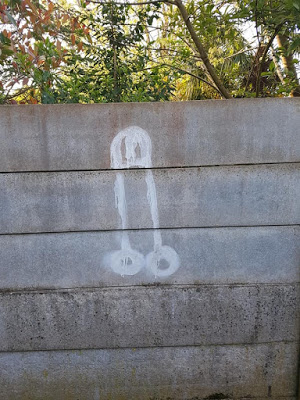
New Order’s Lowlife album of 985 remains a career highpoint, as a full studio album only really matched by 1989’s Technique. Lowlife is a perfect synthesis of rock and dance, Hooky’s metallic bass and the synths and Stephen’s metronomic drums all vying for space, matched by Barney’s growing confidence as a singer. The nervy early steps, getting to grips with technology, finding a way out after Ian’s death, the experimentalism of Power, Corruption And Lies, and then the increasing boldness of Temptation, Thieves Like Us and Blue Monday led to Lowlife.
The penultimate song is Subculture, a peak on an album that features several other peaks, songs like Love Vigilantes, The Perfect Kiss and Elegia. In October 1985 the group released a single version of Subculture, a version remixed by John Robie. Robie was a fixture on the 80s New York electro club scene and turned in a version of Subculture which it is fair to say splits opinion. His remix is aimed squarely at clubland, the shonky vocal of the album version replaced by a new one (for the record I love the shonky, all over the place vocal of the album version, the ways it works against and with the synth riff, massive sound and glittering production). Robie’s version is much more electronic, added some female backing vocals and then layering more and more sounds. Some people hate it. Peter Saville refused to design a sleeve for it.
In 1986 a new mix of Sub-culture appeared, one song on a four track 7″ single given away with Record Mirror magazine (a now long defunct British music magazine). As well as the new exclusive mix of Sub-culture were songs by Raymonde, Hipsway and The Adventures. Robie got the credit, mistakenly or otherwise, but this new remix was by Joseph Watt, a member of the Razormaid! a remix service who worked out of San Francisco in the 80s to produce exclusive versions and edits of songs for subscribers (usually DJs). I’m guessing that the Watt remix came via Robie. It leans back to the Lowlife version with the synth riff and bassline, adding harder drums and percussion. Hooky’s bass runs are centre stage before the vocals come in, alternating with extra keyboard parts, building for several minutes before we even hear Barney. When he does come in his voice is harking back to the album cut, detached and human, a bit exposed, singing the words apparently inspired by the groups visits to Skin Two, a London fetish club- tied up in chains so tight, being unable to shaft without someone else, having to submit, it having to hurt you a little bit. A dissonant pumping synth sound comes in and the sound toughens up again, pitched somewhere between the Lowlife song and Robie’s single remix.
Sub-culture (Exclusive Remix Record Mirror)
In 2017 New order played a series of shows at the old Granada TV Studios on Quay Street as part of the Manchester International Festival, organised by Dave Haslam. They went back through their catalogue to play songs they’d not played for years and to make it more interesting/difficult for themselves recruited some young musicians from the Royal Northern to form a synth orchestra. The famous synth riff on Sub-culture was played originally slowed down and then sped up for the recording. The group, minus Hooky of course, marvelled at these young geniuses who could not only play the riff but at the correct speed too. Taking from both the Lowlife and Robie versions it’s pretty magnificent, despite the absence of the most distinctive bass player of the 1980s, and the wall of synth players is visually and sonically great. The video won’t embed but you can find it here.


Filed under: factory records, john robie, joseph watt, new order, record mirror | Leave a comment »




















